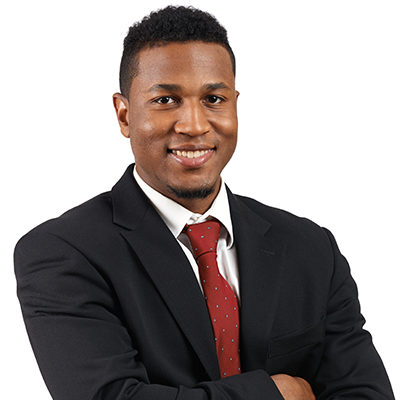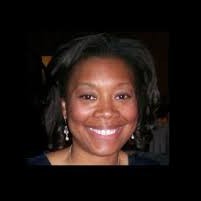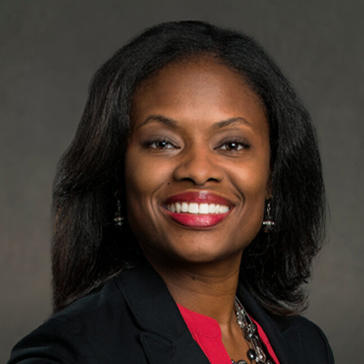For our fourth and final installation in our Spotlight on Teacher Diversity blog series, we sat down with Jason Terrell, Founder and Executive Director of Profound Gentlemen and Cheryl Thompson, the Director of Education Grantmaking at the Charles and Lynn Schusterman Family Foundation. Profound Gentlemen is a non-profit organization that engages current and aspiring male educators of color by placing them in small communities. The Charles and Lynn Schusterman Family Foundation is one of Profound Gentlemen’s funding partners. These two organizations—like others we have profiled—are doing critical, innovative work in the area of teacher diversity. Below is a lightly edited version of our conversation.
EDUCATION FIRST: Why does teacher diversity matter to you, personally & professionally?
JASON: For me, school wasn’t always a safe haven—I didn’t really have teachers that were a source of inspiration or that I felt connected with. I never saw my identity reflected in teachers or in my curriculum. Instead, my images of success came from home, from my elders and community. Ultimately, I decided to become an educator to close that gap for others. I founded Profound Gentlemen to make sure men of color can have additional support they need so they can be their best selves for kids, and so they can teach curriculum that is meaningful for them and impact their students.
CHERYL: So much of what Jason said resonates. Though I had the ideal—my mom was a parent volunteer, I had older siblings and cousins in school and three black teachers in elementary school—there was still a disconnect. While at school, I got the message that I personally belonged there, but not everyone who looked like me did. For me, teacher diversity is about creating an environment that doesn’t create dissonance in children, and that doesn’t force them to sacrifice parts of themselves to be in school. I want school to be a place that recognizes and amplifies the brilliance that students of color bring.
EDUCATION FIRST: How are your organizations prioritizing a focus on teacher diversity in the face of COVID-19, and what are 1–3 specific actions your organization has taken that have been particularly successful/impactful to do so?
JASON: We’ve made three core pivots. First, our program model is fully virtual and we’ve built content community circles that meet on Zoom for our gentlemen to share resources and best practices to support each other. We know we don’t have the answers, but we are deeply listening to what our teachers are saying they need and trying to meet those needs. Second, we’ve focused on building culture. We’ve led a workshop series on various things, like how to build a bitmoji classroom, things that are fun and that teachers can implement in their classrooms right away. Third, we’ve developed “subscription boxes” to send our members in the mail to replicate some of our retreat experiences. They include t-shirts, manipulatives, chart paper and more. Critical to our pivots has been the ability our funding partners have given us to be creative and try new things—and even make mistakes—as we’re navigating this new world.
CHERYL: At our foundation, our focus on teacher diversity is—and has been—to support diversity through retention. We can’t bring people into a system, but then not have plans to retain them. It is like having a leaky bucket. Additionally, our focus is on listening directly to teachers of color because as we focus on what it means to be anti-racist and on culturally relevant pedagogy, we think this is a critical aspect of achieving equity by design. These are the reasons why Profound Gentlemen is one of our anchor grantees. We really appreciate how Profound Gentlemen places an emphasis on being proximate to the gentlemen in each of their regions—listening to them, and asking them how they would identify the root causes of the problems they are facing. More broadly, Schusterman is a part of a funder workgroup to figure out how to get more funding in education to go to people of color. Within our foundation, we have also been applying a racial equity lens to our work, and within our K12 education portfolio, our Equity by Design work has been a key part of our learning around this. It informs everything we do, from increasing the numbers of educators of color to advocating for more equitable policies and practices within school systems.
EDUCATION FIRST: What are some challenges you have faced with prioritizing/advancing a focus on teacher diversity, especially in this time?
JASON: As the work and interest in teacher diversity is growing, we truly need more collaboration within our sector amongst organizations who are working with different parts of the pipeline. I think it would be powerful to figure out how we can collaborate with others who are focused on teacher diversity on policy decisions and have a North Star that we’re aligning ourselves to. If we had more of a collective strategy, we could combine services and program offerings in really thoughtful ways.
CHERYL: Right now, equity is a “shiny thing” in the funding community; it was even before the COVID-19 pandemic and certainly is now. As a leader of color, at times I’ve found it hard to balance managing my own exhaustion while still maximizing the benefit of people’s interest in equity, in order to make the work we are trying to do ultimately sustainable. This means pushing for mindset shifts among people who think equity is an “add on” and ensuring that funding around equity-related initiatives are made for the long term.
EDUCATION FIRST: Looking forward 3–5 years, what policies do you think states and districts should focus on that will most effectively prioritize/advance teacher diversity?
JASON: It has been exciting to start to think about how Profound Gentlemen can be more of a thought partner in the policy space. An effort being led by one of our team members, Darryl Bradshaw, is getting ethnic studies to be a course requirement for high school graduation. We also think data transparency is key—we need more data on retention and recruitment of teachers of color—and also more mentorship programs and networks for teachers of color. Finally, I think states and districts should focus on continually expanding leadership pathways for teachers of color. Right now, the faces of master teachers don’t really reflect the students in their schools. It is important to start changing that. Policies like diversifying the teacher pipeline and culturally inclusive curriculum should also be embedded into the strategic plans and focus areas for LEAs and school networks.
CHERYL: I’d agree with everything Jason said. I’d only add that we need policies that remove barriers to entry to the teaching profession for teachers of color, especially for things like financial cost and testing that don’t correlate to student success.
We greatly appreciated the opportunity to connect with Jason & Cheryl, and their reflections resonated greatly with what we are hearing in the field about the importance of centering the focus of teacher diversity strategies on the challenges and solutions teachers of color identify, collaboration across the sector with an eye toward action and sustainability, and the importance of prioritizing policies focused on data and teacher career pathways. Without a doubt, we see this as a critical time for all organizations to keep teacher diversity at the forefront. To learn more about our Educator Diversity Work and read the rest of the blog series, please click here.




